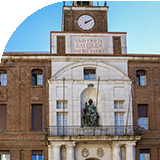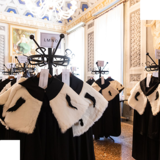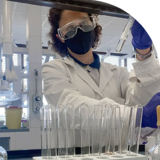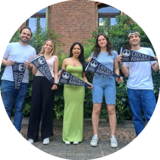Useful Tools
Visita anche

Unicatt
Università Cattolica: the university, programmes, admission and faculty

Academic Staff
Profile, teaching, announcements

Research
Scientific research, projects, structures

International students
Study at Università Cattolica
World Endeavors
| Option 1 | Option 2 | Option 3 | |
| 2 weeks | 13 - 26 July | 27 July - 9 agosto | 10 August - 23 August |
| 3 weeks | 13 July - 2 August | 27 July - 16 August | 10 August - 30 August |
| 4 weeks | 13 July - 9 August | 27 July - 23 August | 10 August - 6 September |
Lisbon is the capital and largest city of Portugal, with an estimated population of 3 million people in the metropolitan area. It is mainland Europe's westernmost capital city along the Atlantic coast. The city provides an interesting harmony between the historical and modern with many different cultures.
Volunteers will stay in a hostel in either single or shared rooms with shared bathrooms and communal areas. Housing is located in close proximity to public transportation and WiFi is also included.
The common areas include a dining room, a relaxa area, a garden, and a spacious outdoor space. There are also rooms for workshops and practices such as yoga and meditation.
The hostel is located outside the city, near the coast (just a few minutes' walk from Praia da Poca), in a safe area and well-connected to the city center by public transportation (the train station is a 10-minute walk from the hostel). The journey to the city center takes about 40 minutes.
The costs vary depending on the duration of the volunteer project.
For destinations in partnership with World Endeavors, 15 scholarships of €1,350 each are available.
Volunteers work with a variety of NGOs to support children in need by helping to arrange extracurricular activities to keep them engaged and learning,and progressing toward their goals. Volunteer tasks include teaching English and helping them with their homework, designing and implementing completely new extra-curricular activities, supporting existing ones or teaching them a new sport, culture, language, instrument, game, arts and crafts or any other skills the volunteers enjoy!
*Note: teaching is possible in July but not in August, as schools close for summer holidays. In August, summer camps are arranged with games and educational activities for the children, in a very informal, play-based setting.
The conservation program aims to develop and implement projects and initiatives that promote the ecological recovery of degraded areas through the restoration of native forests and native species, involving the community as much as possible. The role of the volunteer, as part of the field team, is to study and learn about each area and forest, and take different actions depending on the time of the year. These fieldwork tasks can include: applying control techniques for invasive, non-native species, as these were wrongly introduced in the last decades for fast reforestation and are now strongly threatening the natural areas; plant different species with diverse methodologies; maintenance of planted areas; protection of biodiversity niches; and management of pedestrian trails. Most of the activities are based in natural parks that surround Lisbon.
Animal Care volunteers support the welfare and protection of abandoned dogs and cats in local animal shelters. The main goal of the NGO is to protect these animals and provide them with medical treatment and companionship, while raising awareness regarding animal abandonment in the hopes that they will be adopted into new, loving families. Daily tasks can include feeding the animals, playing and socializing with them, cleaning cages and kennels, general maintenance of the outside spaces, assisting with basic medical treatments, supporting adoption events, and contributing to communications campaigns in support of the shelters. Volunteers may work with either cats or dogs, depending on the needs of the organizations at the time. All of the animals in the shelters are fully vaccinated.
Upcycling Plastic into Skateboards: This program is a unique opportunity for volunteers to share their love of skateboarding with kids and help the environment at the same time, by transforming plastic into skateboards! This project fights single-use plastic by turning 1.4 kg of plastic into skateboards, 31 ping pong paddles, and beach tennis rackets. The plastic is a hard plastic that comes from bottle caps, and the project has partnerships with local restaurants and schools for collection, thus reusing the plastic. In addition to the environmental impact, this project also focuses on aiding the social integration of marginalized communities that live in the neighborhood. With the project’s headquarters located right in the skatepark, access to skateboarding is expanded, allowing kids to skate anytime they want. The ultimate goal is to raise awareness of single use plastic while having a positive social impact in a neighborhood of marginalized groups. By engaging in this project, volunteers actively take part in an initiative rooted in sustainability, ecology, social justice, and innovation. Volunteer tasks can include separating the plastic, shredding the plastic, helping produce the skateboards and paddles, engaging with the children at the skatepark, and raising awareness about single-use plastics through community outreach activities.
Volunteers team up to re-distribute leftover food from local supermarkets or restaurants among homeless people, poor families and other people in need. Every day, over 3000 people in Portugal are fed by a social institution that collects food in good condition from local restaurants, cafes, and supermarkets that would otherwise be wasted and thrown into the trash. This project provides the opportunity to really fight food waste in the city of Lisbon. The shifts will be held in different centers across Lisbon, and alongside other local and international volunteers, participants will be involved with different tasks such as collecting the food, assisting with packaging it, cleaning used containers, assisting with sorting and storage of any food left for the next day, distributing it to the families and cleaning up at the end of the shift.
Volunteers can also help in a project that reduces social inequalities in Lisbon by supporting a local non-profit that provides food, clothes, shelter and medical care to people in need. In Portugal, inequalities and poverty are very visible, especially in big urban centers. Access to basic services, economic resources, housing and employment is even more limited to people in vulnerable situations and at risk. This program aims to reduce these inequalities by helping people live their lives in dignity and contributing to the important mission of the non-profit organization offering free accommodation, food, clothes, medical care, and all the basic support. Volunteers in this program support the local host center in its daily tasks, which may include preparing, cooking and distributing meals for the homeless people, developing sports and recreational activities, maintaining the center or sorting clothing donations. There is also the possibility to participate and help in other activities related to their education and therapies by sharing your skills and culture.
Università Cattolica del Sacro Cuore uses cookies on this site. Cookies are used to allow the enjoyment of our services and to optimize the user experience. Only technical cookies are active. For more information, refer to the Information on the processing of navigation data and cookies
Ok